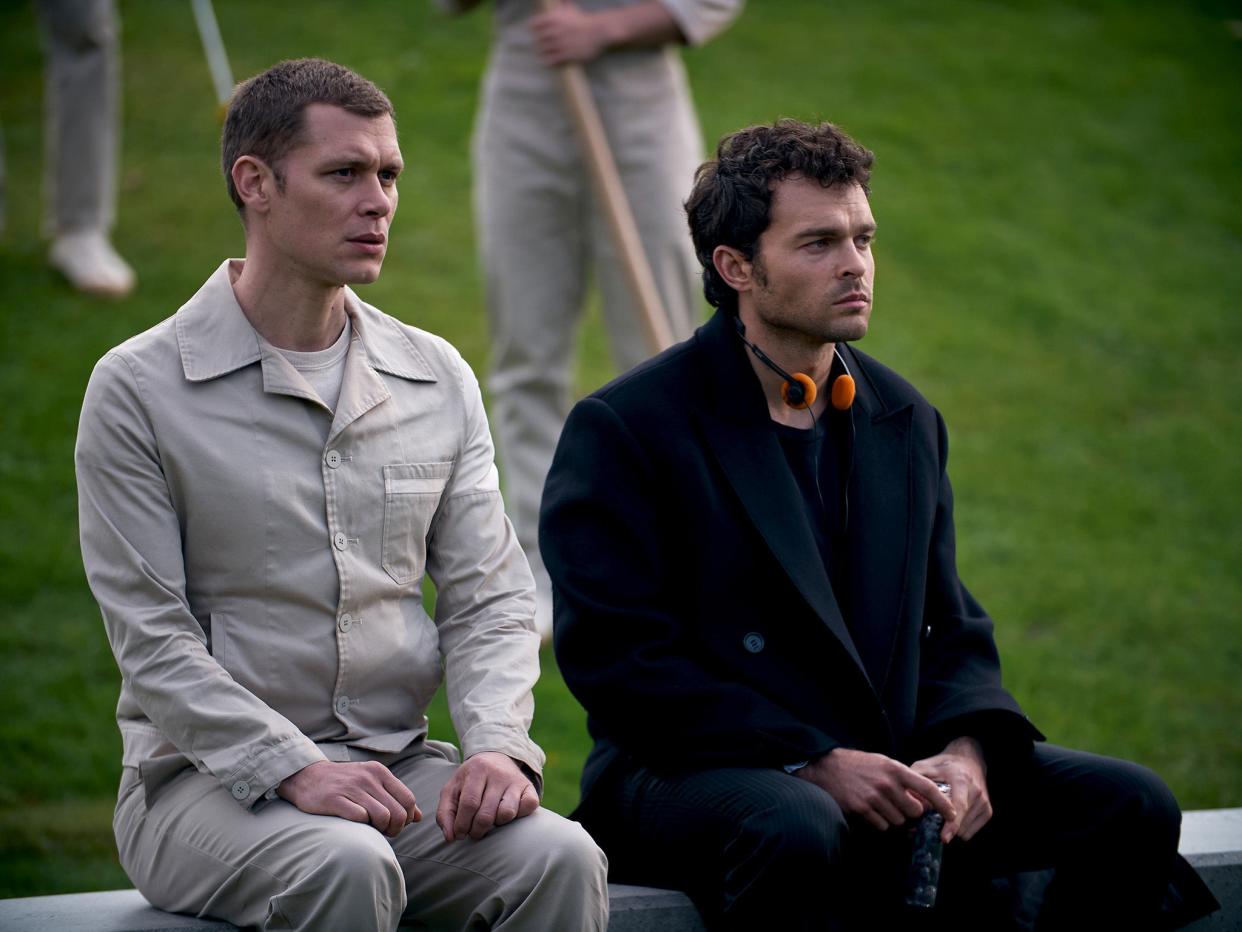Brave New World review: Despite plentiful orgies, this Aldous Huxley adaptation is frustratingly risk averse

In the future, high society will live in a leisure centre. That’s the vision presented by the opening minutes of Brave New World (Sky Atlantic), NBC’s megawatt adaptation of Aldous Huxley’s 1932 novel. Dressed in white and off-white clothing, Lenina Crowne (Jessica Brown Findlay) and her colleagues stroll through airy concrete buildings decorated with the occasional pot plant. This is New London, and fittingly it is vaguely reminiscent of the CGI propaganda about how the Olympic Park would look once all the athletes had left. It’s a world of totalitarian uniformity and casual sex (New London, not the Olympics), where strong emotions are suppressed by a ubiquitous drug, Soma, individuality and monogamy are outlawed, and citizens are watched over by a nearly all-seeing AI. Even the plentiful orgies look boring, so dinner parties must be a hoot.
Luckily, it isn’t long before a corpse comes crashing into this serenity, when a worker grunt is found with his brains dashed on one of the spotless floors. Psychologist Bernard Marx (Harry Lloyd) finds the body, which jogs his well-honed emotional equilibrium. He befriends the free-spirited Lenina and they plan a trip to America, which has been turned into a kind of enormous theme park where fancy types from New London can see how the old world lives.
There we meet John (Alden Ehrenreich), who is a prop technician in one of these shows and lives with his mother (Demi Moore). He is everything they aren’t: soulful, impulsive and loyal to the concept of monogamous love. A group of rebels in the park are planning an insurgency against New London, and haul the reluctant John into their scheme. A clash of cultures, you say? Not until the second episode.
Brave New World isn’t terrible. Brown Findlay and Lloyd are likeable leads, and we root for them even though they are explicitly lacking in emotion. Ehrenreich’s parent-friendly bad-boy shtick, sharpened as Han Solo, has another good workout. Once I got over the sense I was watching a high-concept Center Parcs advert, I appreciated New London’s clean, brutalist aesthetic. Perhaps thanks to its early source material, this world is mercifully light on gadgetry, especially screens, with information instead relayed to the characters through special contact lenses.
The themes of surveillance and liberty are obviously resonant, so it’s a shame the script relishes in characters saying things like “privacy is a vice the social body simply can’t afford”. It’s hardly Huxley’s fault, but Westworld has explored the sci-fi theme-park metaphor so thoroughly that the park material can’t help but feel imitative.
Brave New World was influential because it fizzed with ideas, many of them shocking, which is perhaps why the novel has always been more admired than loved. There’s no doubting its influence, however, and it must have been highly coveted by TV studios. The problem is that between Brave New World the book and this 2020 vision of it lies an ocean of Brave New World-influenced books, films and television. For all its group sex and pill-popping, this adaptation doesn’t take many risks. It’s a cautious old world, and Aldous Huxley would surely have been disappointed.
Read more


